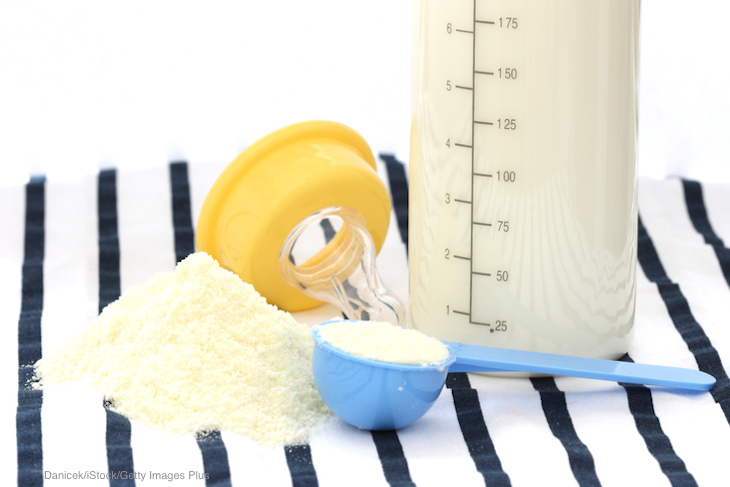The USDA has announced that it is addressing the powdered infant formula shortage and is asking states to take advantage of flexibility in the WIC (Women Infants and Children) program. The shortage was caused by pandemic-related supply chain issues and by the closure of Abbott Nutrition’s Sturgis, Michigan plant, where Cronobacter was found in environmental samples after complains of infant illnesses.

Agriculture Secretary Tom Vilsack said in a statement, “We’re acutely aware that the ongoing recall has left many parents and caregivers concerned about access to formula and how they will feed their babies. Our team is committed to the health and safety of all Americans and is calling on states to act immediately to offer maximum flexibility, information, and support to WIC participants. Meanwhile, USDA will continue the work we started in February, working not only within our department, but across the federal government, suppliers and partners to end this infant formula crisis as quickly as possible.”
The recall was announced in February 2021, but reports of infant illnesses were received by the FDA as early as September 2021. An infant in Minnesota, the only state where Cronobacter is a reportable illness, was diagnosed with that infection in September 2021. And a whistleblower report alleged that Abbott hid reports of contamination from the FDA, was lax about cleaning equipment, did not take appropriate corrective measures, and released untested formula. The cronobacter samples from the Abbott facility did not match the isolates from two infant patients.
There are strict rules in place that dictate what products families can purchase with WIC benefits and what stores allow. The WIC flexibilities will let that program include waivers of medical documentation, maximum monthly allowance, and vendor exchange. In addition, alternate sizes, forms, and brands of formula are offered, and stores will be able to accept exchange of formula purchased with WIC benefits.
Unfortunately, as of May 13, 2022, not all states have adopted all waivers. Florida, Mississippi, Alabama, Georgia, New York, and five other states, along with Puerto Rico, are only offering one waiver, and Illinois is not offering any. The USDA is strongly urging all states to immediately take advantage of these flexibilities to alleviate burdens on families and the supply chain.
USDA is in communication with Abbott Nutrition. Secretary Vilsack is asking the company to redouble their efforts to make sure WIC participants have access to safe formula, especially specialty formulas.
The USDA says that in response to the powdered infant formula shortage, more formula has been produced in the last four weeks than in the four weeks before the recall was issued, despite the Abbott facility closure.




